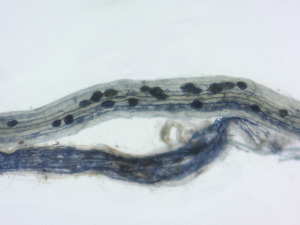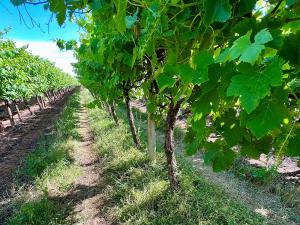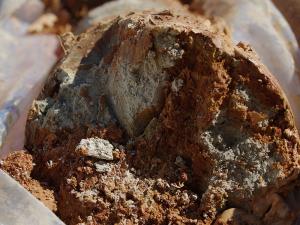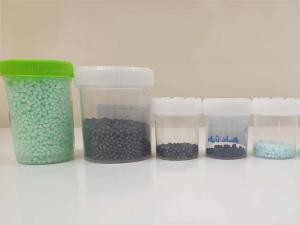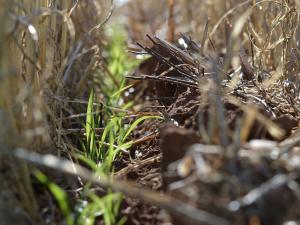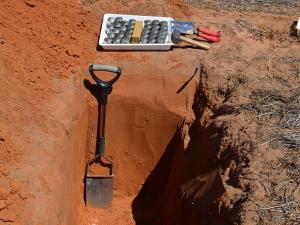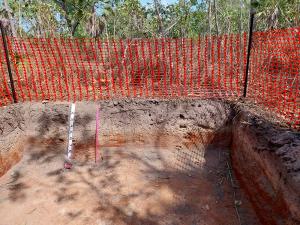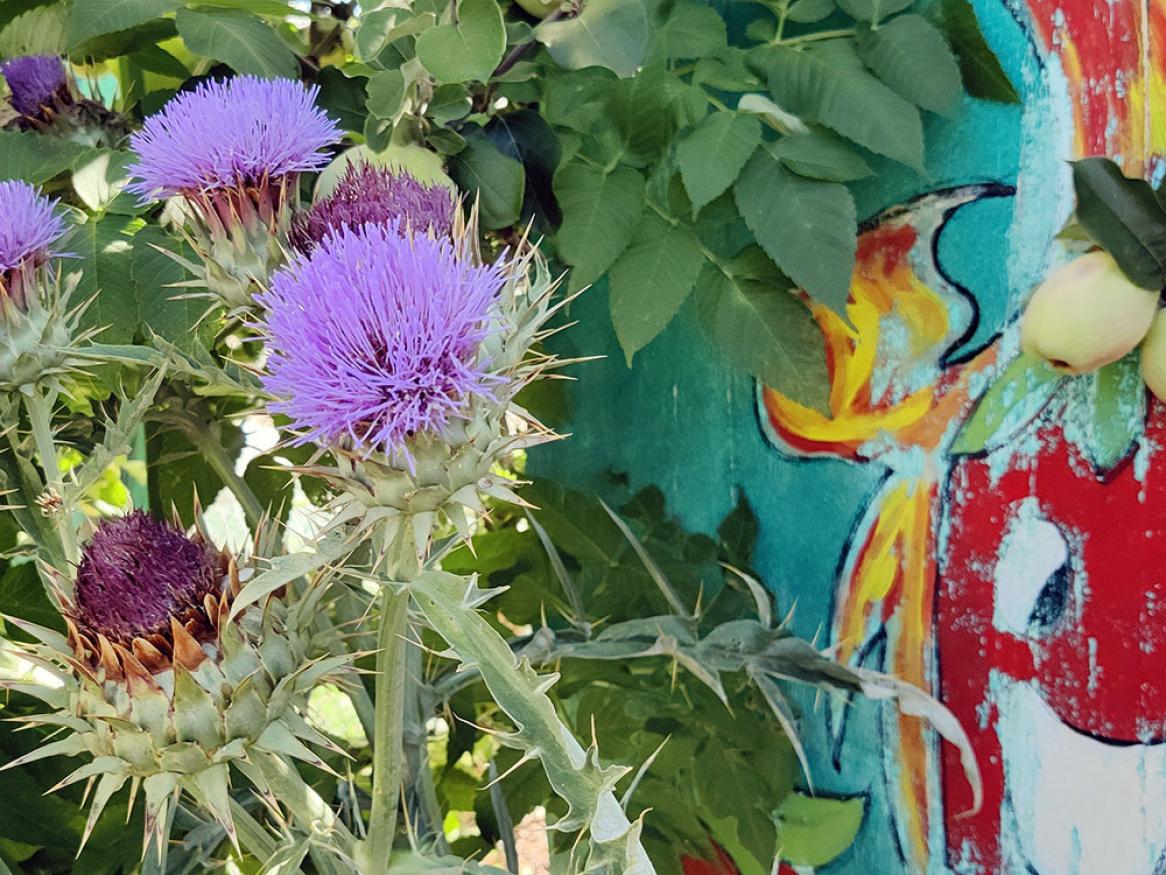Soil Plant Atmosphere Interaction Research Group
At the Soil Plant Atmosphere Interaction (SPAI) Research Group, we investigate the complex interactions between soil, plants, and the atmosphere to tackle pressing environmental issues.
About us
SPAI research focuses on strengthening crop resilience, increasing soil health, and reducing the effects of climate change, contributing to sustainable food production systems worldwide.
Our interdisciplinary team conducts cutting-edge research to decode the dynamic relationships within soil plant and atmosphere interactions. Drawing on the collective knowledge and experience of our specialists, we seek innovative solutions to support sustainable agriculture and the wellbeing of our planet. This involves partnerships with industry leaders, policy makers, and academic peers to translate our findings into actionable strategies.
Our research extends from controlled laboratory settings to greenhouse trials and expansive field experiments. It includes a spectrum of environments from the urban agricultural landscapes within metropolitan Adelaide to nationwide studies and fieldwork in farming and ecosystems. Our work bridges the gap between theoretical knowledge and practical application, aiming to address the pressing challenges of modern agriculture and environmental stewardship.
Through our mentorship of honours, masters, and PhD students, we are committed to teaching the next generation of scientists and industry professionals who will drive meaningful change in the world.
Our research and people
Our team is involved in a vast array of research initiatives including:
Safe Soil, Safe Food
Get involved in our citizen science initiative. We invite residents of metropolitan Adelaide to contribute to our research by submitting soil samples from garden beds. We are testing of PFAS (Per- and Polyfluoroalkyl Substances) contamination. This research aims to provide insights into environmental health and safety within the community.
Our research has applied and basic implications, significantly contributing to environmental protection and enhancing sustainability in food production.
Examples of this include:
- Development of improved fertilizer formulations that enhance nutrient use efficiency and minimize environmental impact.
- Testing of management practices that can increase soil organic carbon and improve soil health.
- Understanding how microbial inoculants can be used to boost plant productivity.
- Innovative means and methods for removing environmental contaminants.
These research impacts, among many others, demonstrate our dedication to working on some of the most pressing challenges in agriculture, leading the way toward more sustainable and productive food systems.
Below showcases the diverse expertise within our research group and reflects the inherently cross-disciplinary nature of soil plant atmosphere interactions. Visit an individual’s researcher profile to learn more.
-
Soil health and management
Dr Ehsan Tavakkoli
Expertise
Soil science, environmental geochemistry, plant science, soil amendmentsVew contact details and researcher profile
Dr Han Weng
Expertise
Understanding soil process drivers, management and regeneration of soil with an emphasis on soil organic carbonView contact details and researcher profile
Birhanu Iticha Ayanssa
Expertise
Soil science, soil amendments, soil amendments alkalinity measurement, soil carbon sequestration, digital soil mapping and its application for site-specific management of soilsView contact details and researcher profile
Dr Thomas Lines
Expertise
Vineyard and orchard floor management. Soil health, microbiology, carbon, greenhouse gas emissions, biocharIndustry collaboration
Horticulture Innovation Australia, Wine AustraliaView contact details and researcher profile
Prof Petra Marschner
Expertise
Soil Ecology, Nutrient cycling, Soil organic matter sequestration and turnover, Acid soil remediationOther
Chief editor Soil Biology & Biochemistry -
Plant-microbe-soil interactions and soil microbiology
Dr Stephanie Watts-Fawkes
Expertise
Arbuscular mycorrhizal fungi, plant nutrition with an emphasis on zinc, biofortification of cropsView contact details and researcher profile
Dr Thi Thanh Hue Ngo
Expertise
Soil nutrients, plant physiology, mycorrhizae, biological fertiliser formulation and assessmentView contact details and researcher profile
Dr Matthias Salomon
Expertise
Arbuscular mycorrhizal fungi, microbiology, soil health and carbon, urban agriculture, greenhouse gas emissions, insect frass, life cycle assessmentsView contact details and researcher profile
Dr Cuc Tran
Expertise
Soil microbiology, soil ecology, microbial inoculants and biological fertilizers -
Soil chemistry, nutrients and fertilizer development
Dr Bo Zheng
Expertise
Mechanochemistry, Fertilizer formulation, plant soil interactions, sustainable soil amendmentsView contact details and researcher profile
Viran Kathri Arachchige
Expertise
Soil chemistry, soil nitrogen, urea fertilisers and fertiliser formulations, food science, food chemistry and food technologyIndustry collaboration
Incitec Pivot FertilisersView contact details and researcher profile
Dr Murray Unkovich
Expertise
Biological nitrogen fixation, stable isotope techniques, plant nutrition, nitrogen cycling, soil strength, crop modelling, soil nitrogen modellingView contact details and researcher profile
Dr Rodrigo Coqui da Silva
Expertise
Nutrient cycling, crop fertilisation, soil use and management, farming systems and agronomy. -
Environmental chemistry and contaminant remediation
Dr Shervin Kabiri
Expertise
Chemical engineering, fertilizer formulation, environmental chemistry, soil and water contamination with emerging contaminants (PFAS).View contact details and researcher profile
Dr Divina Angela Navarro
Expertise
Environmental analytical chemistry, fate and behaviour of contaminants (PFAS, tyre chemicals), sorbent and plant-based remediation
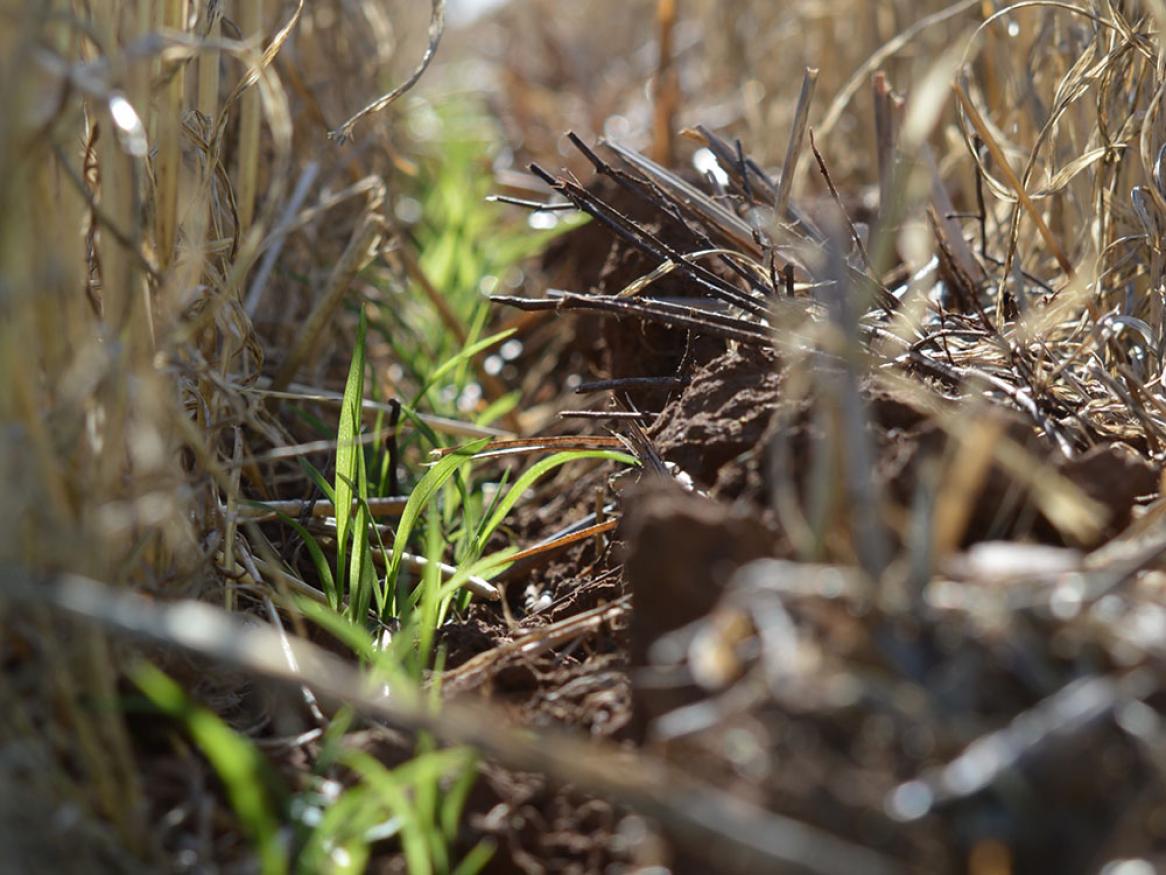
Engage with us
To discuss an industry partnership, consultation, and for general research enquiries, please contact us.
Image: Precision-seeded seedlings emerging next to last year's stubble (provided by Rodrigo Coqui da Silva)

